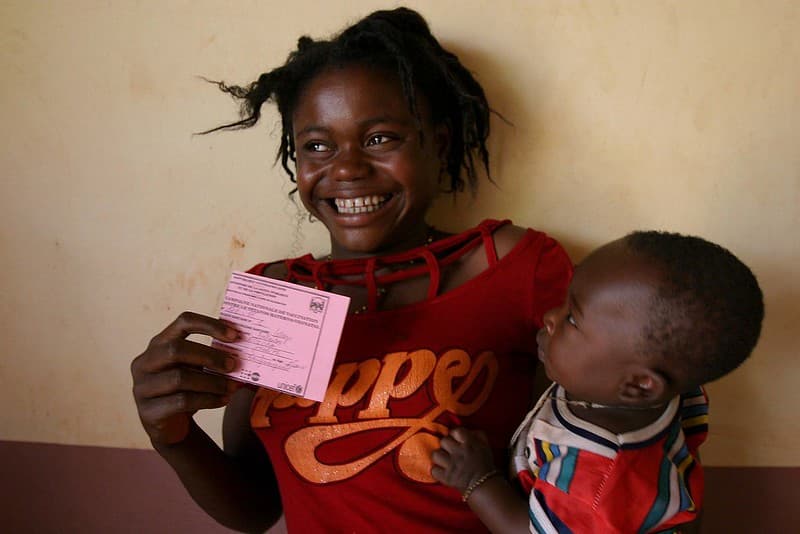Science and Technology Technical Lead(P4)
Vienna
- Organization: IAEA - International Atomic Energy Agency
- Location: Vienna
- Grade: Mid level - P-4, International Professional - Internationally recruited position
-
Occupational Groups:
- Information Technology and Computer Science
- Scientist and Researcher
- Managerial positions
- Closing Date: 2024-02-11
IMPORTANT NOTICE REGARDING APPLICATION DEADLINE\: Please note that the closing date for submission of applications is indicated in local time as per the time zone of the applicant's location.
Organizational Setting
The Department of Nuclear Safety and Security (NS) formulates and implements the IAEA's nuclear safety and security programme, which encompasses the Agency's activities to protect people and the environment from radiation exposure and responds to the needs of its Member States related to nuclear safety and nuclear security.
The Division of Nuclear Security (NSNS) is responsible, upon request, for establishing, coordinating and implementing the IAEA's nuclear security programme to protect against, detect and respond to nuclear security events and threats thereof. NSNS comprises four Sections\:
•Information Management Section
•Nuclear Security of Materials Outside of Regulatory Control Section
•Nuclear Security of Materials and Facilities Section
•Programme Development and International Cooperation SectionThe Department of Nuclear Safety and Security (NS) formulates and implements the IAEA's nuclear safety and security programme, which encompasses the Agency's activities to protect people and the environment from radiation exposure and responds to the needs of its Member States related to nuclear safety and nuclear security.
The Division of Nuclear Security (NSNS) is responsible, upon request, for establishing, coordinating and implementing the IAEA's nuclear security programme to protect against, detect and respond to nuclear security events and threats thereof. NSNS comprises four Sections\:
•Information Management Section
•Nuclear Security of Materials Outside of Regulatory Control Section
•Nuclear Security of Materials and Facilities Section
•Programme Development and International Cooperation Section
The Nuclear Security of Materials Outside of Regulatory Control Section (MORC) is responsible for activities that assist States, upon request, in establishing and maintaining nuclear security systems and measures for the prevention and detection of, and response to, nuclear and other radioactive material outside of regulatory control. These activities include developing nuclear security guidance in the area of nuclear security of materials outside of regulatory control, that is consistent with the relevant binding and non-binding international instruments, as well as providing assistance, upon request, to Member States in implementing their nuclear security frameworks. In addition, the Section conducts the International Nuclear Security Advisory Service (INSServ) and expert missions, upon request, to help Member States to establish and maintain effective nuclear security regimes, assists in capacity building, including education and training through international, regional and national training courses and workshops, develops methodologies, and assists in security upgrades relating to nuclear and radioactive material detection and response capabilities. The Section implements Coordinated Research Projects and technical meetings in the field of nuclear security of MORC and assists Member States in the implementation of nuclear security systems and measures to support Major Public Events.
Main Purpose
Under the supervision of the Nuclear Security of Materials Outside of Regulatory Control Section Head, the Science and Technology Technical Lead will coordinate and assist the work of the S&T Team to provide expertise and delivery of S&T content with and to Member States, in order to assist them in developing and sustaining effective capabilities in this area.
Role
The Science and Technology Technical Lead is a\: (1) a technical lead, leading programme design, coordination and delivery of nuclear security science and technology related activities contained in the Nuclear Security Plan, with Member States participation, monitoring and supervising their implementation; (2) a recognised expert in nuclear security sciences and technologies, contributing expertise and knowledge to Member States in the development, implementation, maintenance and sustainment of nuclear security activities, and participating in other nuclear security response activities, including training and exercises; (3) a coordinator and manager of projects of particular technical complexity and/or sensitivity involving the participation of experts from Member States and other relevant international organizations and/or initiatives as well as inter-agency collaborative projects; (4) a scientific secretary for international scientific meetings related to nuclear security, overseeing the preparation and editing of scientific or technical reports, manuals, proceedings and other publications that provide nuclear security guidance, as well as scientific or technical documentation and papers for discussions; and (5) a substantive contributor, providing inputs to nuclear security activities, in particular major public events, nuclear detection architecture and national response operations, and support plans and implementation of International Nuclear Security Advisory Service (INSServ) missions and relevant assessment services for States, upon request.
Functions / Key Results Expected
• Coordinates and provide technical input to the work of the S&T Team.
• Ensure organization and facilitation of research projects, research coordination meetings, technical meetings, consultancy meetings, as required, in nuclear security science and technology related topics;
• Ensure capacity building activities in S&T activities, mainly through CRPs and TMs, and supports work with Member States, based on Member States’ needs and priorities identified in particular during TMs;
• Provide technical input and develop and publication of Nuclear Security Guidance documents in S&T related subjects and promotes their use by Member States.
Competencies and Expertise
Core Competencies(Competency Framework)
| Name | Definition |
|---|---|
| Communication | Communicates orally and in writing in a clear, concise and impartial manner. Takes time to listen to and understand the perspectives of others and proposes solutions. |
| Achieving Results | Takes initiative in defining realistic outputs and clarifying roles, responsibilities and expected results in the context of the Department/Division’s programme. Evaluates his/her results realistically, drawing conclusions from lessons learned. |
| Teamwork | Actively contributes to achieving team results. Supports team decisions. |
| Planning and Organizing | Plans and organizes his/her own work in support of achieving the team or Section’s priorities. Takes into account potential changes and proposes contingency plans. |
Functional Competencies
| Name | Definition |
|---|---|
| Judgement/decision making | Consults with supervisor/manager and takes decisions in full compliance with the Agency’s regulations and rules. Makes decisions reflecting best practice and professional theories and standards. |
| Partnership building | Identifies and builds partnerships. Develops and maintains long lasting partnerships to strengthen relationships. Delivers programmatic outputs and acquires resources in support of Agency goals. |
| Technical/scientific credibility | Ensures that work is in compliance with internationally accepted professional standards and scientific methods. Provides scientifically/technically accepted information that is credible and reliable. |
Required Expertise
| Function | Name | Expertise Description |
|---|---|---|
| Nuclear Security | National Nuclear Security Regimes | Extensive knowledge of national nuclear security regimes. |
| Management and Programme Analysis | Programme Management | Experience in programme development and management. |
| Management and Programme Analysis | Project Management | Proven project management experience. |
Qualifications, Experience and Language skills
Master's Degree - Advanced university degree in nuclear physics, nuclear engineering, or nuclear security related field.
Bachelor's Degree - University degree in nuclear physics, nuclear engineering, or nuclear security related field with three years of relevant additional experience may be considered in lieu of advanced university degree
Minimum of ten years’ experience working in nuclear security, with a focus on nuclear security science and technology. This experience should be gained from working in an international and national environment. Experience in working with national and international organizations or institutes is desirable.
Proven experience in nuclear security science and technology in the following roles\: project manager, researcher, program developer, and nuclear security operations.
At least 5 years of relevant international experience and at least 5 years’ experience in a leadership role involving research, development, and deployment of nuclear security systems.
Nuclear security science and technology, related to the activities conducted by the S&T Team, such as advanced scientific knowledge and skills in radiation detection equipment, physical protection systems, software and hardware tools, nuclear security emerging threats and technologies.
Applied research and development for nuclear security
Participation in CRPs, technical meetings, technical guidance documents development.
Management of research and development projects design, implementation and evaluation.
Excellent oral and written command of English. Knowledge of other official IAEA languages (Arabic, Chinese, French, Russian and Spanish) is an asset.
Remuneration
The IAEA offers an attractive remuneration package including a tax-free annual net base salary starting at US $77326 (subject to mandatory deductions for pension contributions and health insurance), a variable post adjustment which currently amounts to US $ 35802, dependency benefits, rental subsidy, education grant, relocation and repatriation expenses; Other benefits include 6 weeks' annual leave, home leave travel, pension plan and health insurance. More information on the conditions of employment can be found at\: https\://www.iaea.org/about/employment/professional-staff/conditions
General Information
- The IAEA's paramount consideration in the recruitment of staff member is to secure employees of the highest standards of efficiency, technical competence and integrity.
- Staff Members shall be selected without any unfair treatment or arbitrary distinction based on a person's race, sex, gender, sexual orientation, gender identity, gender expression, religion, nationality, ethnic origin, disability, age, language, social origin or other similar shared characteristic or trait.
- The IAEA is committed to gender equality and to promoting a diverse workforce. Applications from qualified women and candidates from developing countries are strongly encouraged.
- Applicants should be aware that IAEA staff members are international civil servants and may not accept instructions from any other authority. The IAEA is committed to applying the highest ethical standards in carrying out its mandate. As part of the United Nations common system, the IAEA subscribes to the following core ethical standards (or values)\: Integrity, Professionalism and Respect for diversity.
- The IAEA has a zero-tolerance policy on conduct that is incompatible with the aims and objectives of the United Nations and the IAEA, including sexual harassment, abuse of authority and discrimination.
Evaluation process
- The evaluation of applicants will be conducted on the basis of the information submitted in the application according to the selection criteria stated in the vacancy announcement. Applicants must provide complete and accurate information. Evaluation of qualified candidates may include an assessment exercise, which may be followed by a competency-based interview.
- Candidates under serious consideration for selection may be subject to reference and background checks as part of the recruitment process.
Appointment information
- Appointment is subject to a satisfactory medical report.
- Staff members may be assigned to any location.
- Candidates appointed to posts in the Professional and higher categories are subject to IAEA rotation policy and their maximum tour of service shall normally be seven years.
- The IAEA retains the discretion not to make any appointment to this vacancy, to make an appointment at a lower grade or with a different contract type, or to make an appointment with a modified job description or for shorter duration than indicated above.








